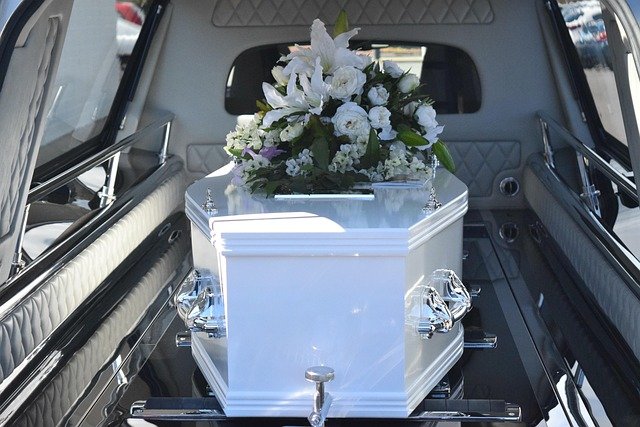Understanding Cremation Services: Process, Costs, and Options
Cremation has become an increasingly popular choice for families seeking an alternative to traditional burial. This process involves the reduction of human remains through high-temperature burning, offering flexibility in memorialization options and often presenting a more cost-effective solution. With various service levels available and regional pricing differences, understanding your options can help families make informed decisions during difficult times.

When facing the loss of a loved one, families must navigate numerous decisions while processing grief. Cremation services provide an alternative to traditional burial that many find more suitable for their needs, beliefs, or financial circumstances. The process has evolved significantly over the years, with modern facilities offering dignified, respectful services that honor the deceased while providing families with meaningful ways to remember their loved ones.
Understanding the Cremation Process
The cremation process typically begins with proper identification and authorization procedures. The deceased is placed in a cremation chamber, also called a retort, where temperatures reach between 1,400 to 1,800 degrees Fahrenheit. This process usually takes two to three hours, depending on the size of the individual. Following cremation, any metal objects are removed, and the remaining bone fragments are processed into a fine, sand-like consistency known as cremated remains or ashes.
Families can choose from several service options, including direct cremation without a ceremony, cremation with a memorial service, or cremation following a traditional funeral service. Each option provides different levels of ceremony and memorialization, allowing families to create meaningful tributes that reflect their loved one’s life and their own preferences.
Key Factors in Cremation Service Costs
Several elements influence the total cost of cremation services. Basic direct cremation typically represents the most economical option, including only the essential services required by law. Additional costs may arise from optional services such as viewing arrangements, memorial ceremonies, upgraded urns, or transportation services.
The choice of cremation provider significantly impacts pricing, as funeral homes often charge more than dedicated crematoriums. Other cost factors include the type of container used during cremation, death certificate copies, permits, and any additional memorial products or services requested by the family.
Regional Variations in Cremation Pricing
Geographic location plays a substantial role in cremation costs across the United States. Urban areas typically command higher prices due to increased operational costs, while rural regions often offer more competitive rates. State regulations also influence pricing, as some states require specific procedures or have different licensing requirements that affect service costs.
Coastal regions and major metropolitan areas generally show higher average costs compared to smaller cities and rural communities. These variations can be significant, sometimes differing by several thousand dollars between regions for similar service packages.
How to Find Competitive Cremation Rates
Researching multiple providers in your area represents the most effective approach to finding competitive rates. Many states require funeral homes and crematoriums to provide price lists over the phone, making comparison shopping more accessible. Online resources and local consumer guides can also provide valuable pricing information.
When comparing providers, ensure you’re evaluating similar service packages, as basic cremation offerings can vary significantly between facilities. Consider factors beyond price alone, including facility reputation, staff professionalism, and the range of services available to meet your family’s specific needs.
| Service Type | Provider Example | Cost Estimation |
|---|---|---|
| Direct Cremation | Neptune Society | $1,500 - $3,000 |
| Cremation with Memorial | Dignity Memorial | $3,000 - $6,000 |
| Full Service Cremation | Service Corporation International | $4,000 - $8,000 |
| Basic Cremation | Local Crematoriums | $800 - $2,500 |
Prices, rates, or cost estimates mentioned in this article are based on the latest available information but may change over time. Independent research is advised before making financial decisions.
Navigating Cremation: What Families Should Know
Families should understand their rights and options when selecting cremation services. Federal regulations require providers to offer itemized pricing and allow families to purchase only the services they want, without requiring package deals. Additionally, families have the right to provide their own cremation container and are not required to purchase urns or other memorial products from the service provider.
Advance planning can provide significant benefits, both emotionally and financially. Pre-planning cremation services allows individuals to make decisions without time pressure and often locks in current pricing. This approach also relieves family members of difficult decisions during their time of grief.
Understanding local regulations is important, as some areas have specific requirements regarding cremation permits, waiting periods, or facility certifications. Reputable providers will guide families through these requirements and ensure all legal obligations are met properly.
Cremation services offer families flexibility in memorialization options that traditional burial may not provide. Cremated remains can be kept in urns, scattered in meaningful locations (where permitted), or incorporated into memorial jewelry or artwork. This flexibility allows families to create personalized tributes that reflect their loved one’s personality and wishes while accommodating various cultural, religious, or personal preferences.



